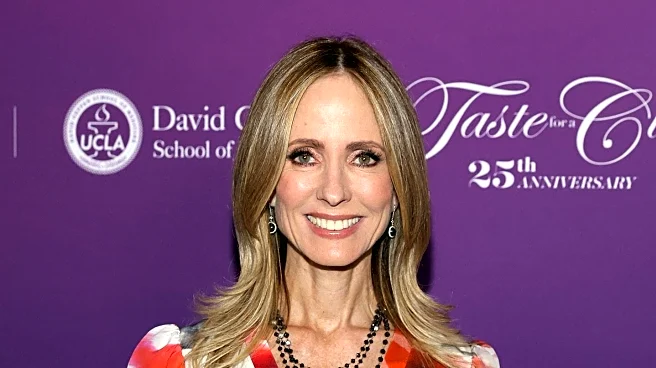What's Happening?
Brody Huber, a 13-year-old from Denver, was diagnosed with diffuse midline glioma (DMG), a rare and aggressive brain tumor, in June 2020. Despite undergoing radiation and various therapies, Brody passed away eight months later, just before he was set
to participate in a clinical trial at Seattle Children's Hospital. The trial, led by Dr. Nick Vitanza, involves CAR T-cell therapy, which uses a patient's immune cells to fight cancer. Brody's family has since established the Brody Huber Foundation to support research at the Vitanza Lab, aiming to find a cure for DMG.
Why It's Important?
The story of Brody Huber highlights the urgent need for advancements in pediatric cancer treatment, particularly for aggressive tumors like DMG. The clinical trial at Seattle Children's Hospital shows promise, with some patients living longer than expected. Brody's family's efforts to fund research could lead to breakthroughs that improve survival rates and offer hope to other families facing similar diagnoses. The foundation's work underscores the importance of community support and funding in driving medical research forward.
What's Next?
The Brody Huber Foundation plans to host its annual fundraiser on November 21, 2025, which would have been Brody's 19th birthday. The goal is to raise $50,000 to support ongoing research at the Vitanza Lab. Continued funding and successful trials could pave the way for new treatments, potentially extending the lives of children diagnosed with DMG. The foundation's efforts may inspire other families and organizations to contribute to pediatric cancer research, fostering collaboration and innovation in the field.
Beyond the Headlines
Brody's story raises ethical considerations about the accessibility and affordability of cutting-edge treatments like CAR T-cell therapy. It also highlights the emotional and psychological impact on families dealing with terminal illnesses. The foundation's work not only supports scientific research but also serves as a testament to Brody's legacy, emphasizing the role of personal stories in driving public awareness and advocacy for rare diseases.

















